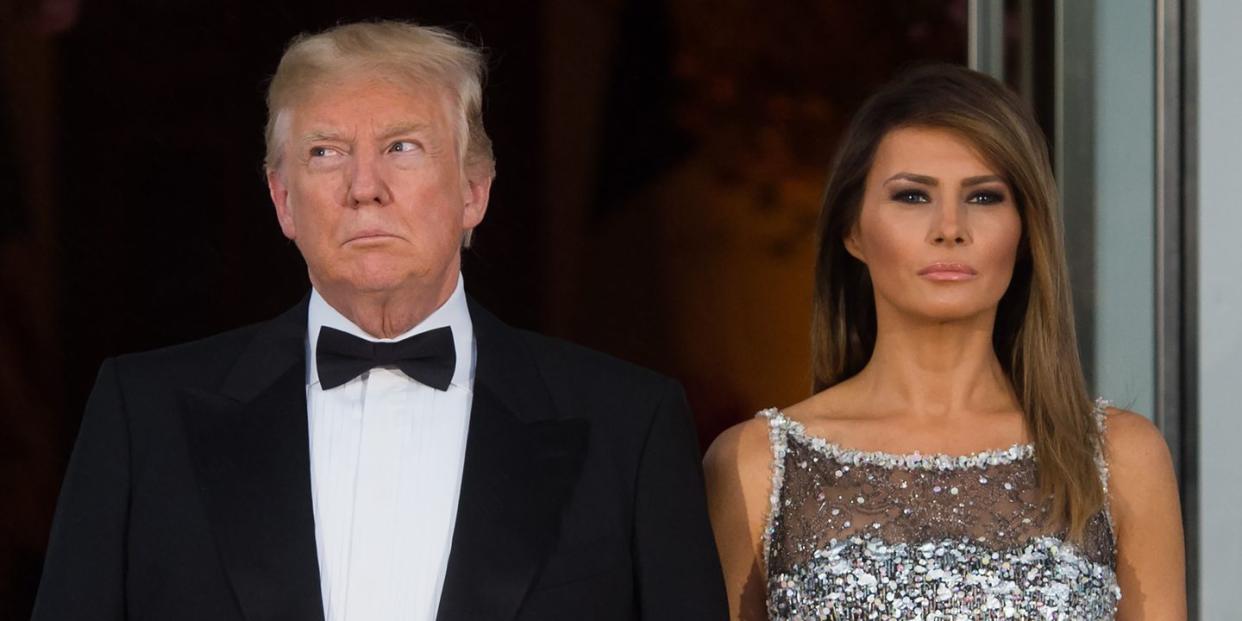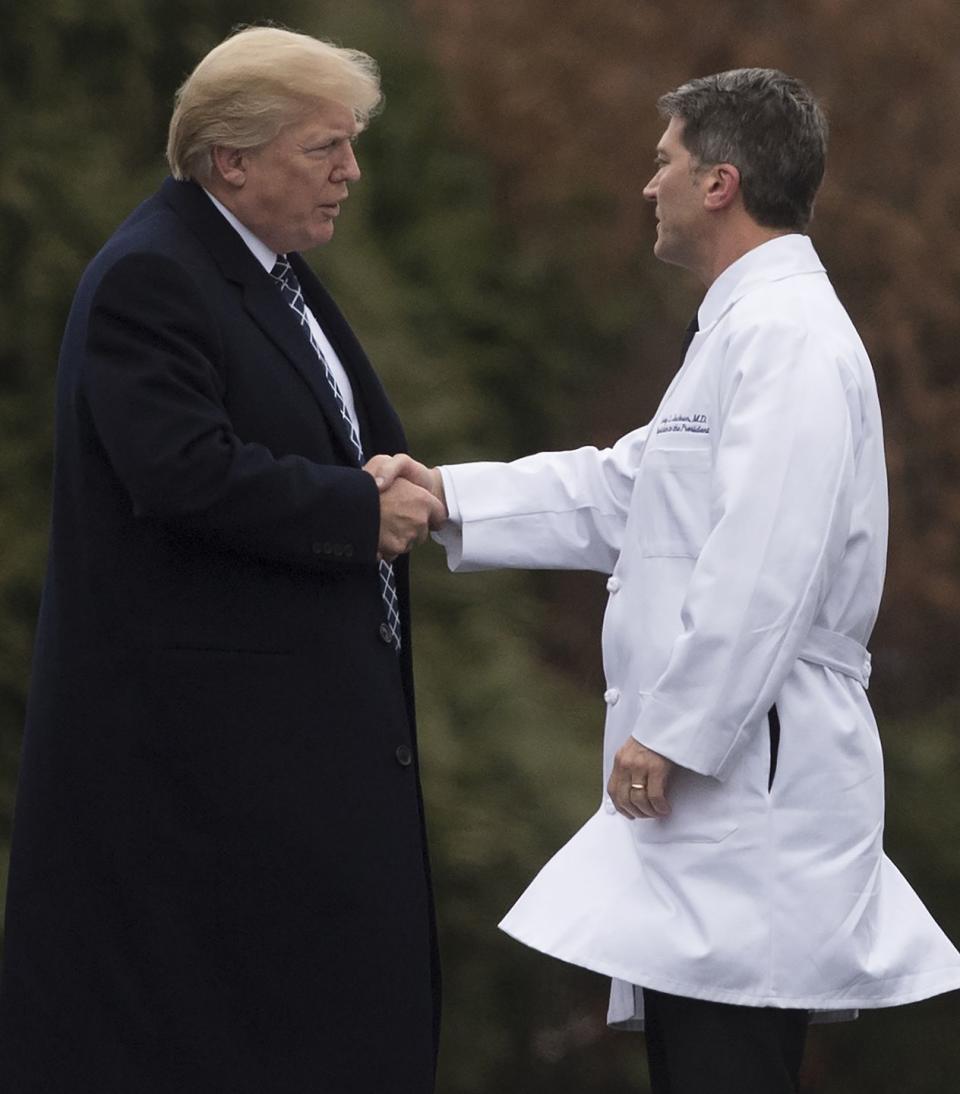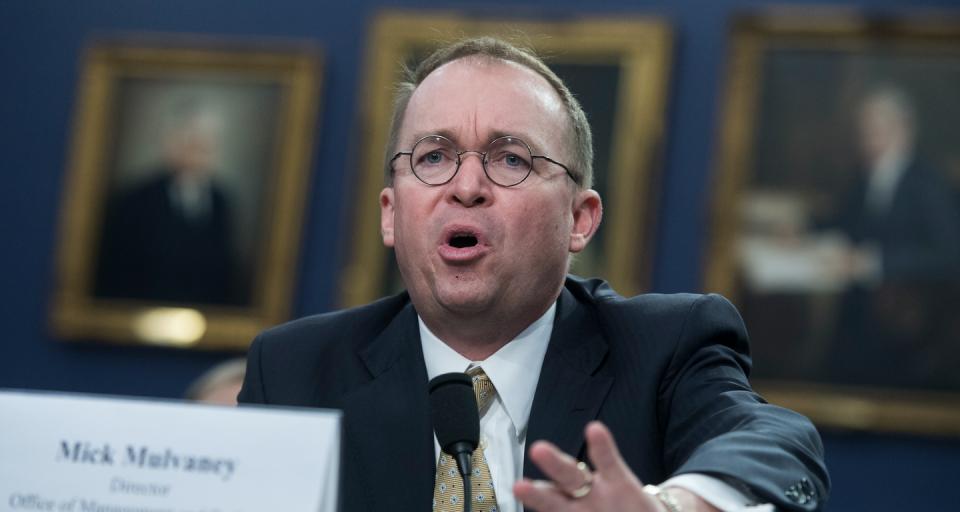The Fog of Corruption in Washington, D.C

WASHINGTON – A foggy dawn broke on Wednesday on an increasingly foggy place. There was too much going on-and that’s not even counting that weird encounter between the president* and Emmanuel Macron, which probably is best left to Jane Goodall to explain. The French president must be wondering if all that money back in 1780 was worth it, and whether or not he could con Louisiana back from his host by promising to rename it the Mississippi Trump Aquatics.
All day on Tuesday, people did not know what to make of the endlessly morphing charges concerning Ronny Jackson, the administration’s choice to head the Veterans Administration. Anonymous sources were blooming like mushrooms all over the halls of Congress. By the end of the day, you could easily believe that travelling on official business with Jackson was like touring with Led Zeppelin, except for the whole mudshark business. Cornered next to a bust of Walter Mondale, Senator Jerry Moran, Republican of Kansas sounded completely perplexed.

“I don’t know,” said Moran, who’d spoken with Jackson earlier in the day. “If there are going to be allegations, they’re going to have to be more than something somebody said they saw.” Despite what he said were Jackson’s assurances that the charges were baseless, Moran did not say this with, shall we say, total conviction.
Typical of the whole business is this CNN account of Jackson’s misbehavior on one road trip in which the Secret Service got concerned that Jackson was going to wake up President Obama.
Two sources who previously worked in the White House Medical Unit described the same incident, with one former staffer telling CNN that it was "definitely inappropriate, in the middle of the night," and that it made the woman uncomfortable. At the time, the incident was reported up the chain of command, and it is one of multiple drunken episodes involving Jackson on overseas trips, according to a source…Members of the Senate Veterans' Affairs Committee have been working through all of the allegations, but have not substantiated the claims, with little documentation available to corroborate them.
Senator Jon Tester, Democrat of Montana, was one of the few people so far to go on the record with charges that Jackson was frequently sockless while on duty. Tester told both NPR and CNN that some 20 members of the military who travelled with Jackson during his time as White House physician had told him similar stories.
"If you are drunk and something happens with the president, it's very difficult to go in and treat the president," Tester told CNN's Anderson Cooper. "That's what multiple people told us this was the case on several different trips."
Elsewhere, over at the Consumer Finance Protection Bureau, head vandal Mick Mulvaney apparently has been applying the principles of George Washington Plunkitt to his ongoing effort to turn the CFPB into a low-rent parody of itself. From The New York Times:
“We had a hierarchy in my office in Congress,” Mr. Mulvaney, a former Republican lawmaker from South Carolina, told 1,300 bankers and lending industry officials at an American Bankers Association conference in Washington. “If you’re a lobbyist who never gave us money, I didn’t talk to you. If you’re a lobbyist who gave us money, I might talk to you.”
One has to wonder if Mulvaney has taken this same approach to his new position. Actually, one doesn’t have to wonder because he said it out loud.
But he wants Congress to go further and has urged it to wrest funding of the independent watchdog from the Federal Reserve, a move that would give lawmakers - and those with access to them - more influence on the bureau’s actions. On Tuesday, he implored the financial services industry to help support the legislative changes he has requested. He concluded the speech, which included an appeal to diminish the bureau’s power, by describing the two types of people he was most responsive to as a congressman - constituents and lobbyists who contributed to his campaign.
So, if I’m following Mulvaney’s philosophy correctly, he will help you get your Social Security check, and then he’ll help some bankers and hedge-fund cowboys to privatize the system and you’re eating cat food within a year.
(American Banker presents us with another example of the mischief Mulvaney is playing with the operation of which he’s been placed in charge. Mulvaney has been regularly critical of the CFPB in the area of cyber-security but, according to experts, he’s done fck-all to improve the system. This has aroused suspicion: "Some observers have speculated that the CFPB's unique response to its data security issues could further indicate that Mulvaney attempted to draw attention to the agency's cyber-related problems simply to cast the bureau in a negative light," American Banker reported. Some Observers are very sharp.)

The ultimate punchline in this story is the fact that, thanks to the Supreme Court in Citizens United, Mulvaney’s approach, at least during his days in Congress, was completely legal because, as Justice Anthony Kennedy reminded us, “Independent expenditures, including those made by corporations, do not give rise to corruption or the appearance of corruption." Once you’ve essentially legalized influence peddling in campaigns, there’s no reason to expect it will not spread to all parts of the government, especially when the country elects a president* who has depended on the peddlers of influence his entire adult life, if not always successfully. As the good Senator George Washington Plunkitt told us around the turn of the last century:
THE civil service gang is always howlin' about candidates and officeholders puttin' up money for campaigns and about corporations chippin' in. They might as well howl about givin' contributions to churches. A political organization has to have money for its business as well as a church, and who has more right to put up than the men who get the good things that are goin'? Take, for instance, a great political concern like Tammany Hall It does missionary work like a church, it's got big expenses and it's got to be supported by the faithful. If a corporation sends in a check to help the good work of the Tammany Society, why shouldn't we take it like other missionary societies? Of course, the day may come when we'll reject the money of the rich as tainted, but it hadn't come when I left Tammany Hall at 11:25 A.M. today.
I’m telling you-the phrase “all the best people” is never not going to be hilarious.
You Might Also Like

